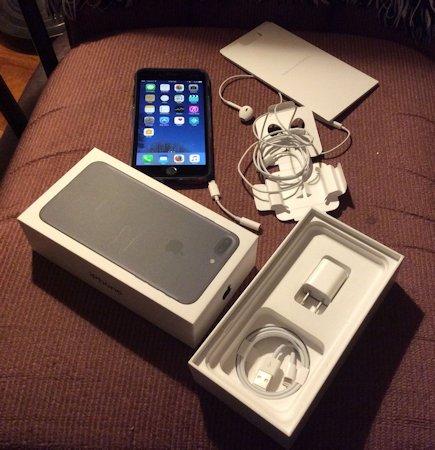Are our devices over-stepping their bounds?
I know the title sounds like something out of Conspiracy Central, but this is a conversation we need to have sooner rather than later. Not because I think that technology is actively “out to get us” but because I see a disturbing trend in software for computers, phones, gaming consoles, and other devices. We are clearly headed towards ubiquitous AI in all of our tools and toys.

Maybe not AI, the programs are still pretty stupid, but we need to pay attention to the persistent interference from the companies that sell us this stuff. We have been told that these intrusions are to make things easier for the average user who is not a technology expert. Perhaps that is true, but it doesn’t hurt the companies either.
I never thought that I would be the one to say this. Really. I bought my first computer in 1982. I bought it as a toy and it ended up being the focus of my life personally and professionally ever since. I’m an early adopter. The only reason I didn’t have the iPhone when it was first released is that Verizon was the only mobile provider that had a strong signal in most of the places where I traveled and the iPhone was exclusive to AT&T until the release of the iPhone 4. I have been programming for over thirty years.
I have been noticing something lately that I don’t like.
When Windows 10 was released last year, I immediately upgraded my laptop. I loved it and I still do. However, there is a setting that I found rather disturbing. Windows 10 has a “feature” that allows your contacts to automatically connect to your wi-fi when they visit your home. On the face of it, it sounds good. It means that you don’t have to screw around handing out your password to every person that visits your home. And yet…
First of all, the setting is turned on by default. Yes, ON so if you don’t know about it, you are now sharing your wi-fi and Internet with anybody you ever played “Mafia Wars” with on Facebook. And, while I don’t mean to single out Facebook, the Facebook Messenger app on my phone keeps reminding me that I should automatically sync my my phone’s contact list with Messenger. You know, so I can be friends with anybody in my contact list. Why would I want to be friends with my doctor, my manager, and my great-aunt Tillie who has never been on Facebook and never will be?
And you have to be careful to pay attention to what you are giving away when you use apps as well.
I nearly enabled a totally unnecessary Twitter tool the other day that claimed to be able to tell me what countries my Twitter followers come from. I just happened to notice that the app could follow people for me, and disabled it right away. But what if I hadn’t noticed? Once you get past the point where you are following three or four people, you might not notice that you were following a bunch more people than you intended to follow. And if the apps choice of people to follow is as accurate as the movies that Netflix thinks I want to watch, heaven help me.
Pretty Sneaky Sis
It used to be that you only had to worry about unwanted software being installed by applications distributed by unknown companies. Now everybody is doing it. And some are more forthcoming than others. I had to reinstall Adobe Acrobat Reader yesterday and it also installed two other applications: McAfee Security Scan, and Intel Security True Key. Either the installer didn’t tell me or I was on automatic pilot because I was trying to get some work done, but I don’t remember receiving any notification that either application was being installed.
Why should I care? I already have antivirus software and never asked to have McAfee installed. I also have a password management tool and have no use for True Key, and furthermore I don’t like others deciding what software I should have. I shouldn’t have to opt out, I should be asked if I want to opt in.
I probably sound pretty naive being concerned about this. This has been coming for a long time, and it isn’t as though I just noticed it, but when I realized that some people, even those who are reasonably technical, have not noticed these things either, I thought it might be worth mentioning.
Just saying. . .

Who is Irene P. Smith? I am an author, programmer, and web designer. A former Contributing Editor to PC Techniques Magazine, I have written about computers and programming since 1989, and began publishing fiction in 2003. My home is in New York State, along the Delaware River, where I live with my husband and son.

You can also find me elsewhere on the web:
- My "other" blog: An Irene Thing
- My Author's Website: irenepsmith.com
- My Professional Website: irenesmith.com
- Flash Fiction eZine: Nimue’s Grotto
- Writing eZine: Dreams in Transit
- Facebook: IrenePSmithAuthor
- Twitter: @Story_Teller
Resteemed. Linux might be a better go than using Windows. My work is mainly in the Microsoft STack, but I've been doing a lot of Linux (Ubuntu) lately. It is a much better experience, at least from a security aspect.
I have worked mostly in the Microsoft stack myself, and I mostly use Windows because the Mac costs a LOT more and most of the applications I use every day are not available for Linux. I wonder though, is Linux is really more secure or just less of a target? Just a thought. :)
I would say less of a target, but not necessarily because of low usage, but because of the OS and applications mostly being open source. It reduces the target vector.
We should be required to Opt-in, not Opt-out. I realize most people just go with the default settings at installation and this would be "bad" for businesses.
Agreed. This type of automatic opt in makes me wonder why they are hiding such things. I think most of these default settings are things people would change if they knew about them.
It is my opinion that all or most of these globalist companies are tied to the #BigData collection programs in place by govt's and related agencies.
the Snowden Leaks proved what many of us had known for years. PRISM was the final nail in the coffin.
The UK govt's recently had to admit that not only is their haystack / spying pgms still in place but that they are literally data mining and surveilling everyone connected to University campuses, and all data connected to them.
It occurred to me that even if I didn't mind that they are "watching" me, the lack of privacy is a problem. If I'm not doing anything illegal, they have no reason to be tracking what I do or buy.
Nice post! Upvoted and followed @irenepsmith
Thanks!
Spy is the first anti-theft application developed by smartphone users, to help protect sensitive data on your Android device. With Spy you can quickly and remotely track your applications or a stolen phone or tablet, while viewing and controlling many of the most important aspects of your device, all at a touch of a button and also check text spy that how to get text messages from another phone sent to mine there. Thank you!